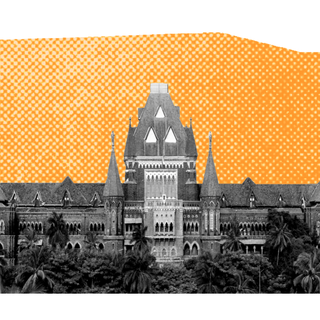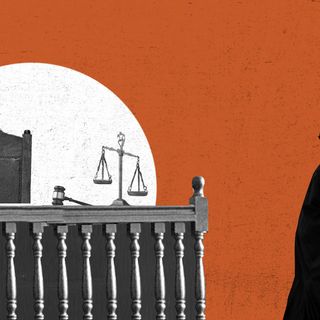In a concerning order, the Dindoshi Sessions Court in Mumbai observed that HIV+ sex workers should be detained lest they pose a great danger to society. The court upheld a previous order of a Magistrate Court, which sent a woman who was allegedly carrying out sex work to two-year detention.
“As the victim is indisputably suffering from HIV, which can be easily transmitted through sexual intercourse, setting of the victim at large is likely to pose a danger to the society,” the court noted recently. The detention, the bench argued, will “ensure that the victim leads a normal life in future, after getting necessary brainwash.” In associating an HIV+ sex worker with “danger,” the court does two things: it brings attention to the need to decriminalize sex work in India and shows the extent of stigma and misinformation around HIV.
The facts of the case are contested. The woman was allegedly involved in sex work and was sent to detention based on her HIV status. As per Section 17(4) of the Immoral Traffic (Prevention) Act (PITA), “the Magistrate can order a person in need of care and protection to be sent to protective home or custody,” Bar and Bench explained.
The court’s observation strips the person of their right as a citizen and fuels the stigma around a health condition sex workers have continuously struggled with. The discriminatory treatment of the woman, in this case, is evident by the use of the term “brainwash.” The “normal life” that is expected from the woman is a product of rampant criminalization of sex work, as a result of which people face violence and discrimination due to the constant conflation of sex work with trafficking. A 2015 panel appointed by the Supreme Court noted people should read the provisions of the ITPA in the context of consenting adult sex workers. One recommendation was that a provision allowing magistrates to remove workers from a place be deleted.
Detaining someone and brainwashing them amounts to cruelty and a violation of human rights — as the Supreme Court observed, sex workers are entitled to the right to life and live a life of dignity. The pervasive treatment of sex workers as oppressed (or “victims,” as the court noted in this case) is dehumanizing, resulting in making social welfare schemes inaccessible.
Related on The Swaddle:
India’s Healthcare System Is Still Failing Queer‑Trans People. A Public Health Movement Can Change That.
Secondly, it bears reiteration that being HIV+ does not make someone a danger to society. “There exists a severe stigma surrounding HIV/AIDS in Indian society, with infected individuals often facing workplace discrimination, ostracism, and poor access to treatment facilities, basic amenities, and proper nutrition,” an NGO explained. The discrimination is exacerbated for sex workers who are already denied essential social security services.
According to an analysis of national health data, the proportion of Indian sex workers with HIV/AIDs declined until 2017, possibly due to more condoms and increased funding to control the disease. “But there appears to be little change in violence, stigma, and discrimination against sex workers, how Indian states treat them varies, and funding and drugs are not always available when and where they should be,” IndiaSpend noted.
Designating HIV+ individuals as societal hazards furthers the stigma and fuels misinformation around the condition. HIV/AIDS intervention programs in the past have fallen prey to lacking awareness and rampant prejudice. The condition, for instance, was not considered a possibility in the frame hold of traditional monogamous marriage, excluding married women and husbands from the category of “high-risk” individuals. This meant that “many people who were at a high risk of contracting HIV were not paid attention to due to a lack of engagement from both the state and the HIV/AIDS intervention movement itself,” journalist Sayantan Datta wrote for The Swaddle. Moreover, such a deleterious assumption also painted people from transfeminine communities as more likely to carry HIV/AIDs.
Discrimination and violence against sex workers are linked to an increased risk of disease. They also disrupt access to healthcare for communities. Researchers of a 2012 study noted: “The role of stigma, discrimination, and violence targeting female sex workers globally will be required to reduce the disproportionate disease burden among these women.” Datta also argued for The Swaddle that “socio-legal discrimination faced by queer-trans people translates into severe discrimination in accessing healthcare.” This makes public awareness and education a necessity to address the barriers in accessing healthcare.




